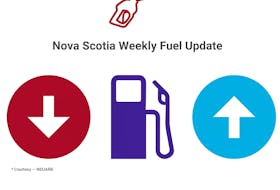A court challenge filed this week by Ecojustice against the federal government says the first regional environmental assessment under Canada's new Impact Assessment Act was rushed, incomplete, and set a dangerous precedent for future projects.
Ecojustice lawyers, on behalf of Ecology Action Centre, Sierra Club Canada Foundation and WWF-Canada, allege the federal government failed to properly assess the impacts of offshore exploratory drilling in Newfoundland and Labrador with the regional assessment which began last year.
The application for judicial review alleges the Impact Assessment Agency of Canada (IAAC) relied on a deficient report to accelerate exploratory drilling.

Sigrid Kuehnemund, WWF-Canada’s vice-president of ocean conservation, says the report was deficient in a number of areas: a tight timeline with little opportunity for meaningful public engagement; a lack of assessment of cumulative effects of offshore exploration; a lack of areas set aside for protection from development, including the Northeast Newfoundland Slope Marine Refuge; a lack of thorough consideration of the effects of exploration on climate change targets; and many data gaps, including failure to incorporate best available science in development recommendations.
“We want to send that assessment back to the regional assessment committee for a complete assessment,” said Kuehnemund.
“Instead of kind of going back to the drawing board to redo the work, (government is) instead planning to develop a regulation based on the assessment that would prohibit future drilling projects from undergoing any further environmental assessment.”
According to an emailed statement from the IAAC, there was “a robust public engagement process” throughout the assessment which resulted in the regional assessment committee’s report on Feb. 29 this year.
And four days later, IAAC began public consultation on a ministerial proposal to designate exploratory drilling offshore Newfoundland and Labrador for exclusion under the new act, with mitigation and follow-up measures as regulatory conditions.
“The objective is to improve the efficiency of the assessment processes of these projects, while maintaining a high standard of environmental protection,” reads an emailed statement from an IAAC spokesperson to The Telegram.
But the environmental organizations taking legal action take issue with that exclusion.
“Exempting exploratory drilling from environmental review flies in the face of environmental stewardship and responsible decision-making,” said Ecojustice lawyer James Gunvaldsen-Klaassen.
“We’re taking legal action because Canadians across the country should be able to trust that their government is capable of following their own regulations to ensure that projects, including exploratory offshore oil drilling, will only proceed if they pass a proper assessment and their effects on the environment are properly accounted for.”
Kuehnemund said if the exemption proceeds it would be precedent-setting in showing that industry pressure could win out over strong environmental regulations.
@juanitamercer_









